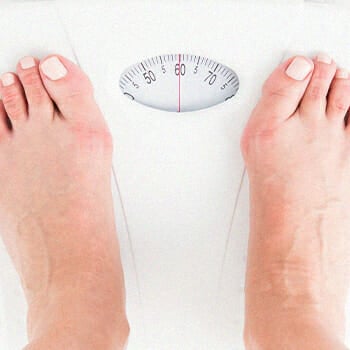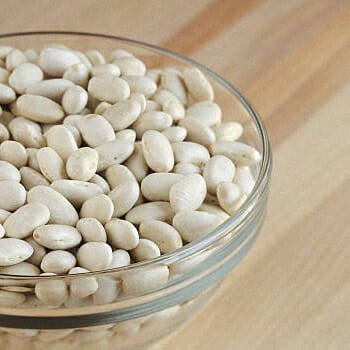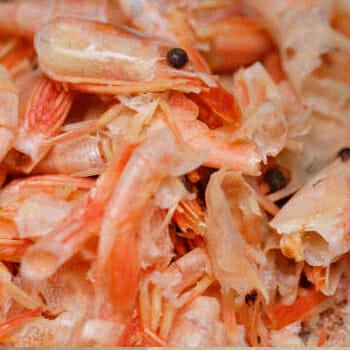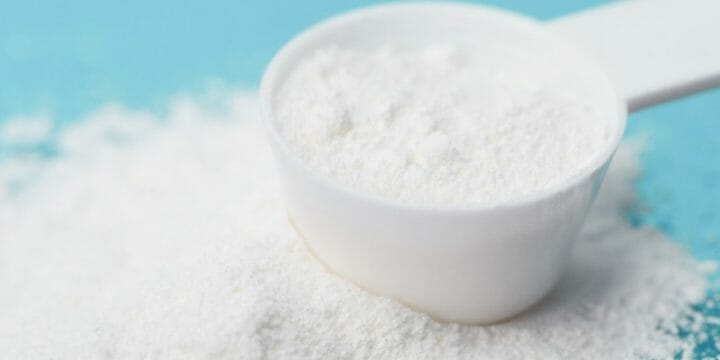Many people only focus on natural fat burners to promote weight loss, but there’s another smart solution - fat blockers.
Fat blockers are now more common than ever before in dietary supplements. However, before you buy the next product you see for your supplement stack, you may want to consider adding natural ingredients to your meal plans.
We’re definitely all for using supplements to help with weight loss, but thanks to my research and some advice from our dietitian, we’ve been able to come up with a list of simple and natural ingredients.
Let’s start with some basics.
Quick Summary
- Natural fat blockers are substances that slow down fat digestion and absorption.
- These blockers function by binding to fat molecules, slowing down fat-digesting enzymes, and indirectly promoting the burning of excess fat.
- A study published in Nutrition Journal highlights Chitosan's effectiveness in reducing body fat percentage by limiting fat absorption.
- Personally, I find the integration of natural fat blockers like Garcinia Cambogia and Glucomannan into diets a promising approach to weight management.
What Is A Fat Blocker?

A fat blocker is a substance that slows down the body’s ability to digest and absorb fat molecules.
It means all the action happens in the stomach and digestive tract, where the body is working to break down food into macro and micronutrients.
As a doctor, I've seen firsthand how fat blockers can impact digestion and absorption of fat molecules.
Exploring the rich history of natural fat blockers, we find that various cultures have long utilized specific foods and herbs as traditional methods for managing weight and enhancing metabolic health.
We’ll get to details about how fat blockers work shortly, but they generally target two functions.
Either they include ingredients that attach to fat from food and make it difficult to break down, or they slow down the release of enzymes that break up dietary fat in the first place.
Both options may help you lose weight by reducing the amount of energy taken in.
Are Fat Blockers The Same As Fat Burners?

Most of the time, you’ll see people promoting weight loss pills in the form of fat-burning supplements. And many people think that they pretty much work the same way.
But slowing down fat absorption and boosting fat oxidation both happen in very different ways.
A fat burner won’t have much effect on how your body deals with dietary fat. Instead, it will boost metabolic processes to make it easier for your body to release fat storage.
But that difference also means these supplements could work very well in a weight loss supplements stack.
How Do Natural Fat Blockers Work?

From my professional experience, I must emphasize that fat blockers aren't a free pass to indulge in unhealthy eating. In my practice, I've observed that patients who combine fat blockers with a balanced diet and regular exercise see the most significant weight loss results.
The psychological dimension of employing natural fat blockers is as crucial as their physical benefits, influencing individuals' attitudes towards weight loss, reshaping their dietary habits, and transforming their overall relationship with food and health.
Here’s how a fat blocker might help with losing weight.
1. Bind To Fat Molecules
As food enters your stomach, various processes begin to break it down.
Fat blockers specifically target and bind to fat cells, making it harder for enzymes to process them.
This leads to less fat absorption and potentially easier weight loss.
2. Slow Down Enzymes

Fat blockers also work by reducing the release of enzymes that break down fat.
This doesn't stop the process entirely, which is important for digesting healthy fats, but it does mean more fat passes through your system without being absorbed.
3. Indirectly Burn Excess Fat
Reduced fat absorption and calorie intake can lead to a net-negative energy balance.
When your body lacks sufficient energy from glucose, it turns to fat reserves, aiding in effective fat burning.
This natural weight loss method can also benefit your blood sugar and blood pressure levels.
Are There Natural Ingredients That Block Fat?

Working alongside our dietitian, we've pinpointed several natural fat-blocking ingredients.
In my practice, I've advised patients to incorporate these into their diets, and many have reported enhanced weight loss results.
1. Garcinia Cambogia
This tropical fruit looks a little bit like a tomato, but it’s most commonly yellow. While it has been linked to some fat-burning benefits in clinical studies published in BMC Complementary Medicine and Therapies [1], there is also evidence that it can help slow down how much fat you process.
Because it’s a good source of fiber, you’ll find that it may trap some of the fat from your food and deliver it through your bowels undigested.
Not only may that help with weight loss, but it can improve the effectiveness of your overall bowel functions.
I would suggest buying the raw fruit in a health food store and adding it to your breakfast.
2. White Kidney Beans

You’ll find white kidney bean extract in quite a few different types of weight loss products and fat burners.
Similar to Garcinia Cambogia, it can support a balanced diet by increasing the amount of fiber intake.
White kidney beans are ideal for use in meal preparation.
Whether that’s on a salad or some form of side to your dinner, you’ll be able to deliver the fiber at just the right time where it could work its magic for your ideal body weight [2].
“The fiber content of white kidney beans supplies 23 percent of the daily value (DV) for that nutrient. An indigestible carbohydrate, fiber in general, promotes bowel health and feelings of satiety. In addition, the soluble fiber in beans reduces your body’s absorption of fat and helps lower blood cholesterol numbers.”
- Paula Martinac, Writer at SFGate.com
3. Phaseolus Vulgaris
Phaseolus Vulgaris is just a fancy name for the common French bean.
These beans are smaller than kidney beans, and they can help you lose weight by stabilizing both fat and carb intake.
That means a more stable blood sugar level after meals, so you avoid spikes that ultimately lead to hunger cravings again.
And with a strong boost of fiber with a meal, you’ll also trap some of that fat.
4. Chitosan

Chitosan is a bit more difficult to get into your meal plans because it’s mainly contained in the shells of shellfish. Now, I know what you’re thinking.
There’s no way you’re going to chew through those shells.
But you can make a broth by boiling up the leftover shells from shrimp or lobsters.
One study published in Nutrition Journal, in particular, found that Chitosan had a direct impact on the body fat percentage of test subjects and that it worked by reducing fat absorption [3].
5. Glucomannan
Glucomannan is the soluble fiber of the konjac plant. Some other root vegetables contain small amounts of this fiber, but the konjac plant has the richest sources.
Some Asian food stores offer dried and ground konjac that you can easily add to meals or into a morning smoothie because there isn’t much flavor to it.
Glucomannan has become increasingly popular in weight loss supplements for its ability to help reduce appetite, but there is also evidence that it binds to fat and carbs [4].
Related Article: Is Glucomannan Safe?
When Is The Best Time To Take Fat Blockers?

Drawing from my busy schedule as a doctor, I understand the challenges of integrating fat blockers into daily meals.
I've advised my patients on strategic timing for taking these supplements, and many have seen optimal weight loss results.
1. First Thing In The Morning
Letting 12 or more hours pass between your last meal of the day and the first meal the following morning may help you boost metabolism activities.
And fat blockers may help even more when you introduce some dietary fiber along with your first meal. Not only will your fat metabolism become more effective, but you’ll also absorb less energy from your breakfast or morning snack.
2. With Every Meal
But then there are all the other meals of the day where you might need reduced macronutrient absorption.
That’s why we recommend adding some of the above ingredients into your lunch and dinner to get a continuous effect on dietary fat to work faster towards a healthy weight.
FAQs
Do Natural Fat Blockers Actually Work?
Yes, natural fat blockers actually work to reduce how much fat your body absorbs. This may have a direct impact on your body fat percentage as a lower calorie intake should lead to burning fat more effectively.
Are Fat Blockers and Carb Blockers the Same Thing?
No, fat blockers and carb blockers aren’t the same things, even though they work in similar ways. Ingredients that block carbs and carb processing enzymes are different from those that target fat. But both types of ingredients are often used in the same supplements.
Does Garcinia Cambogia Burn Fat?
Yes, Garcinia Cambogia might burn fat. It is claimed to work by inhibiting a fat-producing enzyme in the body and increasing levels of serotonin, potentially helping to reduce cravings.
References:
- https://bmccomplementmedtherapies.biomedcentral.com/articles/10.1186/s12906-018-2099-7
- https://www.weekand.com/healthy-living/article/benefits-white-kidney-beans-18004291.php
- https://nutritionj.biomedcentral.com/articles/10.1186/s12937-016-0122-8
- https://www.ncbi.nlm.nih.gov/pmc/articles/PMC3892933/
About The Author
You May Also Like







This article helped me understand the difference between fat blockers and fat burners. I always thought they were the same.